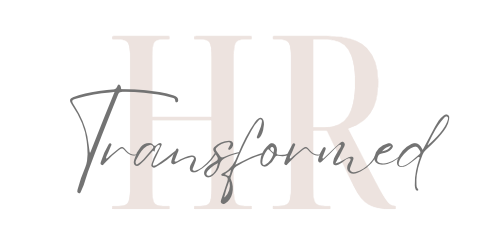Top 5 HR Trends for 2024
Written By: Brenda Quach
The world of HR is constantly evolving and changing, with new trends and challenges emerging every year. In 2024, several trends are likely to shape the future of HR. In this article, we will explore the top 5 HR trends for 2024.
AI IN HR POLICIES
Artificial Intelligence (AI) has been a buzzword in the HR world for several years, and it's not going away anytime soon. AI is likely to play an even bigger role in HR in the coming years. Companies will continue to use AI to streamline HR processes, such as recruitment, engagement surveys, and employee evaluations. However, as AI becomes more prevalent, HR policies will need to be created to ensure the ethical and unbiased use of AI.
HR managers will need to be trained in the use of AI and understand its limitations to make informed decisions and avoid potential legal issues. It's also important to note that AI can help identify and address issues related to diversity, equity, and inclusion in the workplace. For example, AI can be used to identify potential biases in job descriptions and help hiring managers write more inclusive job postings.
FOUR-DAY WORKWEEKS
The four-day workweek is becoming increasingly popular across the US as more businesses experiment with this model. This entails working fewer hours while maintaining productivity and pay. According to a recent report, over 75% of US workers could complete their current workload in a four-day workweek. Millennials, who make up around 35% of today's workforce, are particularly enthusiastic about this approach. By adopting a shorter workweek, companies can improve employees' well-being, performance, and retention, and also prepare themselves for the future of work.
A shorter workweek offers several benefits, including improved employee well-being, enhanced employee performance, and increased employee attraction and retention. Working fewer hours can reduce stress, burnout, and fatigue, and increase happiness, health, and satisfaction. It can also boost creativity, focus, and efficiency, and reduce errors and distractions. Offering a four-day workweek can make a company more appealing and competitive in the labor market, especially for younger generations who value flexibility and autonomy.
Businesses considering implementing a four-day workweek should take into consideration:
Staggering off-days to ensure that client demands are met and that there is sufficient coverage throughout the week.
Ensuring that their employees are still able to complete their work in a shorter week and that productivity is not compromised.
Communicating effectively with employees about the new arrangement and address any concerns or issues that may arise during the transition.
By taking these factors into account, businesses can successfully adopt a four-day workweek and reap the benefits that come with it.
RETURN TO OFFICE POLICIES
With the pandemic receding, many companies are considering how to bring employees back to the office safely and effectively. HR policies will need to address issues such as flexible work arrangements.
Companies may also need to reevaluate their office layouts and amenities to better accommodate employee preferences and promote collaboration. For example, some companies may opt for more open floor plans and communal workspaces to encourage interaction and creativity.
Management Training for Culture Enhancement
Companies are recognizing the importance of a positive company culture in attracting and retaining employees. HR policies will need to focus on creating a culture of inclusivity, transparency, and continuous learning. Management training will be essential to creating a culture that supports employee growth and engagement.
Managers will need to be trained on how to effectively communicate with their teams, provide feedback, and create a positive work environment. They will also need to be trained on how to identify and address potential issues, such as harassment and discrimination.
Employee Experience, Mental Health, and Wellness
Employees are looking for employers that prioritize their well-being and mental health. HR policies will need to focus on creating a supportive work environment that addresses issues such as stress, burnout, and work-life integration.
Companies may need to offer mental health resources and wellness programs to promote employee well-being and retention. For example, some companies may offer on-site yoga classes, meditation rooms, or mental health counseling services.
HR Transformed is committed to supporting you and your organization in achieving your goals. Whether you need help developing a training program that will prepare your team for success in 2024, running an engagement survey to identify your top priorities for this year, creating and implementing new policies, or something else entirely, we are here to help.
Our team of experts has years of experience working with organizations of all sizes and in all industries. We understand that each organization has unique needs and challenges, which is why we take a personalized approach to every project we work on. We will work closely with you to understand your goals, challenges, and opportunities, and develop a tailored solution that meets your specific needs.
So if you're looking for a partner who can help you achieve your goals and stay on top of these trends, contact us today to learn more about how we can help you transform your organization and achieve success.



